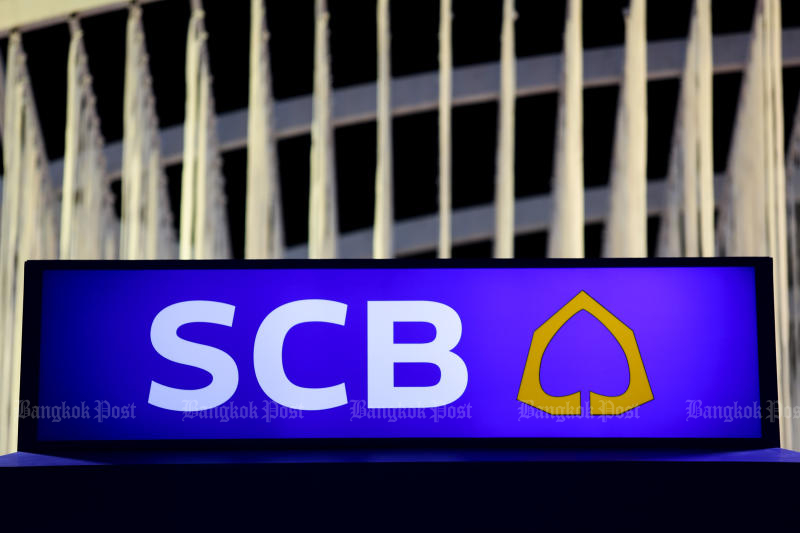
The unaudited consolidated net profit of three commercial banks -- Siam Commercial Bank (SCB), TMB Bank and Tisco Financial Group -- were mixed for the first quarter, with most recording a bad loan uptick, while SCB's chief warned Covid-19 impacts will be apparent in future quarters.
SCB's unaudited consolidated net profit rose 1% from a year earlier to 9.3 billion baht for January to March as an 8.9% increase in its top line and an 8.1% decline in operating expenses cancelled out higher loan impairment charges amid heightening economic uncertainties.
Against a backdrop of unfavourable economic conditions, SCB's loan-loss provision soared by 79.4% from a year before to 9.7 billion baht in the three months through March not only to cover new non-performing loan (NPL) formation but also to comply with the new accounting standard on asset impairment during an economic downturn.
"The Covid-19 pandemic is taking a toll on people and the private sector. It also poses significant challenges to the banking sector, both in terms of revenue and asset quality, which will become apparent in subsequent quarters. Capital buffers and prudent risk management will help the bank weather the storm and a potential economic recession in 2020," said Arthid Nanthawithaya, chairman of the executive committee and chief executive of SCB.
The bank's consolidated NPLs fell by 1.9% from the end of 2019 to 83.6 billion baht at the end of March, and gross NPLs also lowered to 3.17% of loans outstanding from 3.41% over the same period.
Its net interest income rose 4% year-on-year to 25.8 billion baht, though it was pressured by a lower interest rate environment, a 1.4% contraction in total loan growth and a drop in contributions after divestment of SCB Life Assurance.
Non-interest income increased by 20% from a year earlier to 11.9 billion baht, largely from higher recurring fee-based income. In the first quarter, wealth management fees grew 31% year-on-year to 2 billion baht and income from bancassurance businesses increased fivefold to 3.2 billion, which was mainly driven by the new bancassurance partnership with FWD Group.
"These factors combined outweighed the impact of revised regulatory guidelines on fee structure introduced at the beginning of the year and reduced transaction banking activity during the Covid-19 outbreak," he said.
SCB's capital position remains strong with common equity tier 1 of 16.1% and a total capital adequacy ratio of 17.2%.
TMB delivered a 164% year-on-year surge in its first-quarter net profit, thanks to fully recognised quarterly earnings from Thanachart Bank (TBank). TMB is consolidating with TBank.
TMB set aside impairment charges based on the expected credit loss (ECL) model amounting to 4.76 billion baht and further wrote off NPLs of around 2.4 billion to limit future downside risks for the first quarter.
Its gross NPLs amounted to 44.2 billion baht at the end of March, compared with 37.7 billion at the end of last year. The NPL ratio climbed to 2.76% as of March from 2.35% at the end of December.
"The first-quarter performance overall is fairly in line with the target. The bank started to see synergy value, especially for balance sheet and cost. The merger process has progressed as planned, with a strategic bancassurance partnership with Prudential Life Assurance Thailand, while the customer transfer and the launch of co-location branches have begun," chief executive Piti Tantakasem said.
Meanwhile, Tisco said in a statement its quarterly net profit plunged 14.2% from a year earlier to 1.48 billion baht largely due to higher impairment charges based on the ECL model.
The bank's loan-loss provision under the ECL model soared to 1.05 billion baht in the first quarter from 108 million a year earlier.
"The challenge for this year's operations is loan quality. NPLs tend to increase in line with economic conditions, a business slowdown, additional compulsory business standards and uncertainty over when the economy will bounce back. This could cause our earnings to differ from earlier estimates," said group chief executive Suthas Ruangmanamongkol.